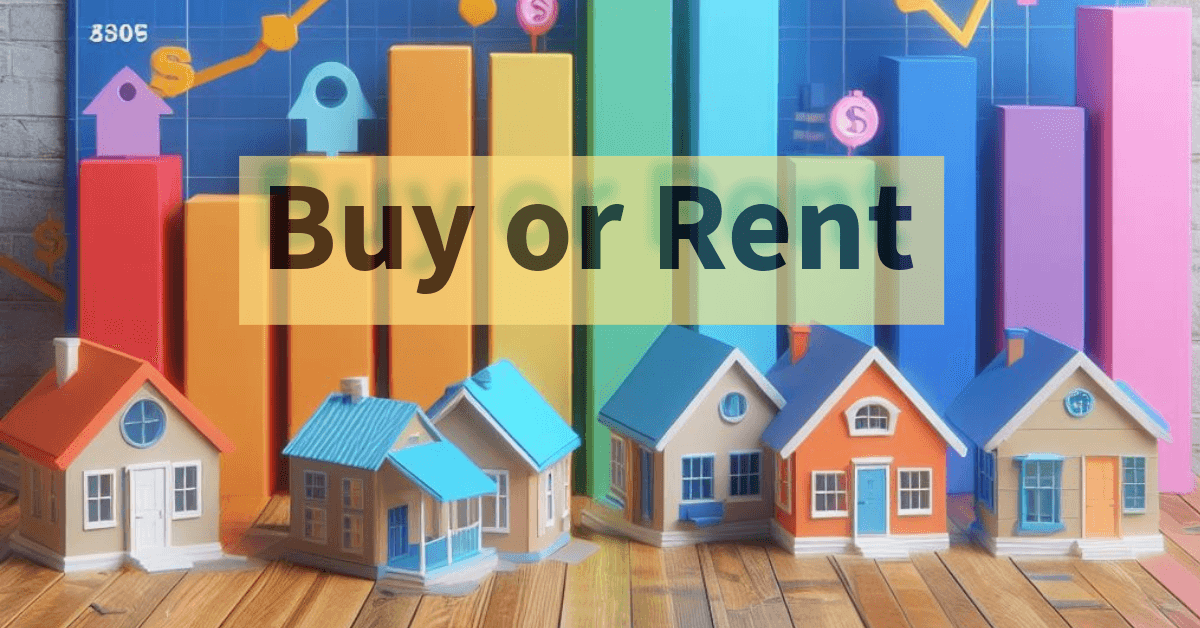Table of Contents
Introduction
Buy or Rent, the perennial question is a common quandary in the realm of real estate. In this guide, we will dissect the key considerations for both homeownership and renting.
The Homeownership Advantage: Building Roots
1. Stability Beyond Four Walls
- Owning a home bestows a profound sense of stability and permanence, anchoring you to a place you can call your own.
2. Equity Accumulation
- With each mortgage payment, you construct a foundation of equity, a valuable asset poised to grow over time.
3. Tax Benefits Unveiled
- Homeownership unveils the potential for tax benefits, including deductions on mortgage interest and property taxes.
4. Pride in Possession
- Experience the indescribable pride and accomplishment that accompanies owning your unique abode.
The Rental Perk: Embracing Flexibility
1. Flexibility on the Fly
- Renting introduces a sense of freedom, allowing for easy and frequent relocations based on your evolving preferences.
2. Lower Barriers to Entry
- Experience the relief of lower upfront costs, making renting a more financially accessible option.
3. Maintenance Liberation
- Shift the responsibility of maintenance and repairs to the landlord, freeing you from the burdens of homeownership.
4. Predictable Finances
- Enjoy the comfort of predictable monthly expenses, devoid of the unpredictability of unexpected home repair costs.
The Tug of War: Responsibilities or None? The Choice is Yours
1. Financial Frontloading
- Brace yourself for substantial upfront costs, including hefty down payments, closing fees, and moving expenses.
2. DIY vs. Delegate Dilemma
- Homeownership brings forth the decision between DIY repairs or hiring professionals, each with its associated costs.
3. Selling Challenges
- Selling a house demands strategic planning, patience, and preparation, especially when moving on short notice.
4. Riding the Market Rollercoaster
- Housing market fluctuations introduce an element of risk, impacting your equity and requiring preparedness for potential ups and downs.
5. Wealth Building or Renting
- Recognize that rent payments contribute to your landlord’s wealth, not yours, essentially funding someone else’s investment.
6. Control Considerations for Buy or Rent
- Renting may limit your control over modifications and renovations, necessitating adaptation to the landlord’s rules.
10 Essential Real Estate Terminologies Every Home Buyer must Know
Conclusion: Buy or Rent
Whether you choose the stability of homeownership or the flexibility of renting, understanding the nuanced advantages and responsibilities of each empowers you to craft a housing narrative that aligns with your unique preferences and lifestyle.
Frequently Asked Questions
Is it better to buy or rent a home?
It depends on your financial situation, lifestyle, and long-term goals. Owning builds equity, while renting offers flexibility.
What are the benefits of renting?
Lower upfront costs, no maintenance responsibilities, and the ability to move easily.
What are the advantages of homeownership?
Equity accumulation, tax benefits, and the freedom to personalize your space.
What are the risks of homeownership?
Maintenance costs, property value fluctuations, and commitment.
Can I afford to buy a home?
Evaluate your finances, credit score, and down payment options.
What’s the impact of interest rates on buying vs. renting?
Lower rates favor buyers, while higher rates may make renting more appealing.
Should I rent while saving for a down payment?
It’s a common strategy, especially if you’re not ready to commit to homeownership
What about renting-to-own or lease options?
These arrangements offer a middle ground between renting and buying.
How do I make the right choice for my situation?
Consult with a financial advisor and weigh the pros and cons based on your unique circumstances. 🏠🤔




